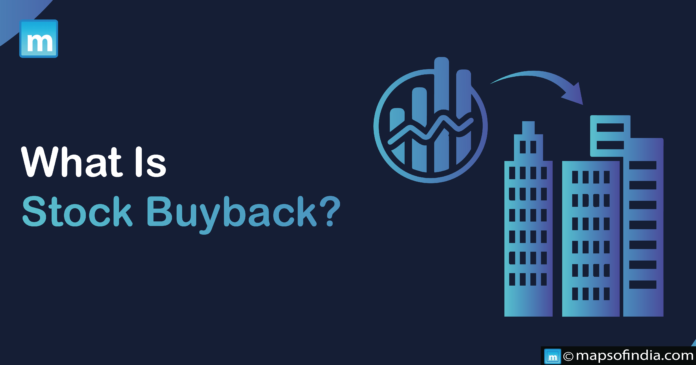When a publicly traded firm uses funds to acquire units of its company stocks on the stock exchange, this is known as a stock buyback. A business could take this action to give investors money they don’t need to repay for activities and other investments. A corporation that conducts a stock buyback buys shares of the company on the stock exchange from every shareholder looking to sell. A stock buyback is accessible to all stockholders and is not intended to target any particular class of stockholders. Shareholders are not required to sell their shares back to the firm.
A “repurchase authorisation,” which specifies how much revenue will be set aside to buy back shareholdings, alternatively, the number of units or percentage of outstanding shares it intends to buy back—is frequently announced by public firms that have opted to conduct a stock buyback.
Why Do Businesses Repurchase Their Stock?
Companies typically repurchase their shares to increase value for their shareholders. Value in this context refers to an increasing share price. The price of a company’s stock increases if there is a desire for its shares. A corporation that purchases its own stock adds value for all of its shareholders by driving up its stock price through increased demand.
There are benefits to stock buybacks, even though dividend payments are likely the most popular means to return money to shareholders:
Significantly boost stock values
Any share buyback program’s principal objective is to raise the stock price. The board could believe that now is a good moment to acquire business stock since it is inexpensive. Investors can see a buyback as an administration expressing confidence, though. After all, what makes a business want to repurchase stock whose value is expected to decline?
Tax effectiveness
Rising share prices are not taxed at all, but dividend income is taxable as income. Naturally, shareholders who sell their stock back to the corporation may have to pay capital gains taxes, but those who choose not to do so benefit from a higher share price and no further fees.
Greater adaptability than dividends
Any company that begins distributing a new dividend or increases an existing distribution must do so gradually. That’s because they risk lowering share values and upsetting stakeholders if they reduce or eliminate the dividend going forward. Conversely, since share buybacks are one-time transactions, they are far more flexible management tools.
Appropriate dilution
Growing businesses can find themselves competing for talent. The firm’s total number of outstanding shares will rise due to issuing share options to retain staff, diluting current owners. One strategy to counteract this effect is buybacks.
Negative impacts of Stock Buybacks
Many detractors of stock buybacks claim that they are an inadequate strategy for businesses to increase the worth of their shareholders. The following are some drawbacks of stock buybacks:
Wastage of Funds
Stock buybacks may prioritise immediate share price increases when alternative, more lucrative uses of the money are available, depending on various reasons. While hoarding funds for emergencies or investing in R&D may not assist share prices in the short term, they may provide higher value in the long run.
Debt-driven share repurchases
In the years before the Covid-19 outbreak, borrowing was used to fund up to 50% of all buybacks. Because of low borrowing rates, companies were encouraged to borrow more money to use for share buybacks to boost short-term stock values. Many detractors claim that this was a remarkably naive tactic.





